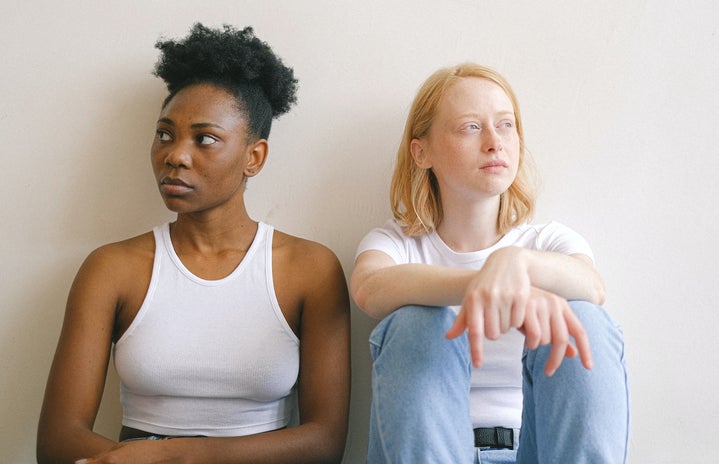“Um, chile, anyways, so…” “She’s always pressed.” “Period, sis!” All three of these phrases contain African American Vernacular English, or AAVE. AAVE is a dialect of English commonly associated with speech used by African Americans and has gradually become more mainstream since 2013 (especially with the help of TikTok), but within the black community, it’s been used for decades.

As someone who has grown up surrounded by AAVE, I would unintentionally slip in some AAVE terms as a child, and I would be met with question marks from my non-black friends, or they would laugh, assuming that I had misspoken. I quickly adapted to leave AAVE out of my vocabulary, but I would soon be ridiculed for “talking white.” For years, I opted to “talk less, smile more” — has anyone else watched Hamilton during quarantine? If I spoke one way, people thought I stumbled across my words frequently, but if I spoke another way, I was denying the color of my skin and was told by my black friends that I was talking “white.”
This confusion is common among black people who attend primarily white educational institutions and lasts for years. We feel out of place no matter who we’re with. However, when AAVE recently became “popular” and “trendy,” I didn’t suddenly feel “seen” or “accepted.” It was a feeling of being on the outside of a trend, but always looking in (okay, I’ll stop with the theatre references now). These same terms that I’d grown up hearing were suddenly being used by non-black people worldwide, and their meanings were being debated in the comments of TikTok videos. Something that I and many others have been laughed at for using and for not using became a trend. And that’s the problem with AAVE being used by those who aren’t black.

When black people use words such as “sis,” “pressed,” “bae,” or “chile,” we’re seen as “ghetto” and/or uneducated. However, when people of other races use them, they’re funny and trendy. There’s a double standard and a lack of acknowledgment and appreciation for a dialect that was created by black people and has been in use decades before it was picked up by mainstream culture. It’s quickly becoming another form of cultural appropriation, such as wearing a sombrero for Cinco de Mayo or wearing box braids or cornrows. Non-black creators and influencers are now justifying their use of AAVE by saying that these terms were products of “stan Twitter” and Twitter culture in general, when AAVE was created long before “stan Twitter” even existed.

AAVE shouldn’t be a trend that dies out once mainstream culture picks up something else and shouldn’t be described as normal English with grammatical or spelling errors. When using AAVE, it shouldn’t sound forced, or like you’re trying to imitate a “blaccent” (black accent). If you didn’t grow up hearing and/or using it, you’re better off not using it at all. But perhaps most importantly, don’t make the black people around you feel bad for using it.



